About the Author
Solala Towler was born in 1950 in Massachusetts and currently lives in Eugene, Oregon. He is editor, since 1993, of The Empty Vessel: The Journal of Daoist Philosophy and Practice. He is author of A Gathering of Cranes: Bringing the Dao to the West (The Abode of the Eternal Dao, 1996); Embarking On the Way: A Guide to Western Daoism (The Abode of the Eternal Dao, 1997); Dao Paths to Love, Dao Paths to Good Fortune, Dao Paths to Harmony and Dao Paths to Long Life (MQP Publications (London) and Andrews McMeel (USA), 2002); Chi: Energy of Harmony and Chi: Energy of Happiness (MQP Publications (London), and Andrews McMeel (USA), 2002); and Tales of the Dao (Watkins (London), 2005). His work has also been translated into Dutch, French and Spanish.
Solala is an instructor of Daoist meditation and of several styles of qigong, including Soaring Crane Qigong, Essence Qigong and Wuji Qigong. He has taught classes and seminars all over the United States and elsewhere and is past president of the National Qigong Association USA. He leads tours to China and Tibet to study qigong, and to visit Daoist temples in the sacred mountains of China as well as monasteries in Tibet.
Solala is the founding member of the sacred music ensemble Windhorse and has recorded four CDs of music for yoga, tai chi, qigong and meditation, Mountain Gate, Sacred Soundings, Windhorse: Spirit of Tibet and Boundless. His music has been used as a soundtrack in eight videos and DVDs about tai chi and qigong.
To find out more about Solalas work visit his website at .
Bibliography
Blackman, S. (2005) Graceful Exits: How Great Beings Die.Death Stories of Hindu, Tibetan Buddhist and Zen Masters. Boston, MA: Shambhala.
Blofeld, J. (1985) The Chinese Art of Tea. London: Allen & Unwin.
Cheung, T. (2007) Tea Bliss: Infuse Your Life with Health, Wisdom and Contentment. Berkeley, CA: Conari. 1-800-423-7087, Red Wheel Weiser.
Chow, K. and Kramer, I. (1990) All the Tea in China. San Francisco, CA: China Books and Periodicals.
Cohen, K.S. (1997) The Way of Qigong: The Art and Science of Chinese Energy Healing. New York, NY: Ballantine.
Feng, G.-F. and English, J. (1974) Chuang Tsu: The Inner Chapters. New York, NY: Knopf/Vintage.
Giles, H.A. (1926) Chuang-Tzu: Mystic, Moralist, and Social Reformer. Shanghai: Kelly&Walsh.
Girardot, N.J. (1983) Myth and Meaning in Early Daoism. Berkeley, CA: University of California Press.
Graham, A.C. (1960) The Book of Lieh Tzu. New York, NY: Columbia University Press.
Heiss, M.L. and Heiss, R.J. (2007) The Story of Tea. Berkeley, CA: Ten Speed Press.
Hirota, D. (1995) Wind in the Pines. Fremont, CA: Asian Humanities Press.
Hohenegger, B. (2006) Liquid Jade: The Story of Tea from East to West. New York, NY: St. Martins Press.
Juniper, A. (2003) Wabi Sabi: The Japanese Art of Impermanence. Boston, MA: Tuttle Publishing.
Kaltnemark, M. (1969) Laozi and Daoism. Stanford, CA: Stanford University Press.
Lu Yu (1974) The Classic of Tea, translated and introduced by F.R. Carpenter. New Jersey: Ecco Press.
Macfarlane, A. and Macfarlane, I. (2004) Green Gold: The Empire of Tea. London: Ebury Press.
Merton, T. (1965) The Way of Chuang Tzu. New York, NY: New Directions.
Mitscher, L.A. and Dolby, V. (1998) The Green Tea Book: Chinas Fountain of Youth. Garden City, NY: Avery.
Mortenson, G. and Relin, D.O. (2006) Three Cups of Tea: One Mans Misssion to Fight Terrorism and Build NationsOne School at a Time. New York, NY: Viking.
Murphy, F.H. (2008) The Spirit of Tea. Santa Fe, NM: Sherman Asher.
Ni, H.-C. (1979a) Tao: The Subtle Universal Law and the Integral Way of Life. Los Angeles, CA: Shrine of the Eternal Breath of Tao.
Ni, H.-C. (1979b) The Taoist Inner View of the Universe and the Immortal Realm. Available from www.taostar.com
Ni, H.-C. (1987) The Gentle Path of Spiritual Progress. Los Angeles, CA: Shrine of the Eternal Breath of Tao.
Okakura, K. (2001) The Book of Tea. Boston, MA: Shambhala.
Reps, P. and Senzaki, N. (1957) Zen Flesh, Zen Bones. Boston, MA: Tuttle Publishing.
Spence, J.D. (2007) Return to Dragon Mountain. New York, NY: Viking.
Suzuki, S. (1970) Zen Mind, Beginners Mind. New York, NY: John Weatherhill.
Tanaka, S. (1973) The Tea Ceremony. Tokyo, New York and San Francisco: Kodansha International.
Towler, S. (2005) Tales from the Tao. London: Watkins.
Waltham, C. (1971) Chuang Tzu: Genius of the Absurd. New York, NY: Ace.
Wang Yie (2006) Daoism in China. Warren, CT: Floating World.
Watts, A. (1975) Tao: The Watercourse Way. New York, NY: Pantheon.
Yates, J. (2005) Tales of a Tea Leaf. New York, NY: Square One.
Yu-Lan, F. (1973) A History of Chinese Philosophy: Volume 1. Princeton, NY: Princeton University Press.
Zhongxian Wu (2009) Seeking the Spirit of The Book of Change London: Singing Dragon.
Zhongxian Wu (2008) Vital Breath of the Dao. London: Singing Dragon.
of related interest
Seeking the Spirit of The Book of Change
8 Days to Mastering a Shamanic Yijing (I Ching) Prediction System
Master Zhongxian Wu
ISBN 978 1 84819 020 7
Bagua Daoyin
A Unique Branch of Daoist Learning, A Secret Skill of the Palace
He Jinghan
Translated by David Alexander
ISBN 978 1 84819 009 2
Cha Dao
The Way of Tea
This book is about the art and practice of drinking tea. What could be simpler, you may ask, than making and drinking a cup of tea? But for Chinese and Japanese people, serving and drinking tea is about much more than slapping a teabag into a cup of boiling water and drinking it down. The art and practice of drinking tea is rooted in Daoism and emerged from a philosophy that honored living a life of grace and elegance, of balance and harmony, of fulfillment and enjoyment.
The Chinese character for tea is cha.  It is composed of three parts. The top one represents plants. The middle one represents human or person. The bottom one means wood or being rooted. Thus the true meaning of cha or tea could mean something like the plant that gives humans a sense of being rooted or balanced.
It is composed of three parts. The top one represents plants. The middle one represents human or person. The bottom one means wood or being rooted. Thus the true meaning of cha or tea could mean something like the plant that gives humans a sense of being rooted or balanced.
Daoism (Taoism) is the native philosophy of China, going back thousands of years and having its roots in ancient shamanism (wu). Most people have heard about the Dao through the book by Laozi (Lao Tzu) called the Daodejing (Tao de Ching), written over 2500 years ago. In it Laozi, or Old Boy as he is called in China, writes, in eighty-one short and concise chapters, a primer on how to live a balanced and harmonious life, in accordance with the basic laws of nature. As a matter of fact, nature may be used in place of the term Dao. By nature he means the vast, everchanging, organic nature of the universe and our place in it.
Laozi describes the Dao as:
Something mysteriously formed,
Born before heaven and earth.
In the silence and the void,
Standing alone and unchanging,
Ever present and in motion.
It is the Mother of both heaven and earth.
I do not know its name
And so I call it Dao.
(Chapter 25)
The Daodejing has been used, down through the centuries, as a treatise for governing a country as well as a manual for spiritual self-cultivation (xiulian). It was originally written in archaic Chinese and can be translated in many different ways, depending on the translators knowledge of not only Chinese, but also the language of the Daoist cultivation techniques that it describes. There are many different versions in English as well as other languages. I would suggest you take a look at several and do a comparison. In this way you will be able to get a true flavor of what the Old Boy is talking about. All the quotes from the
Next page
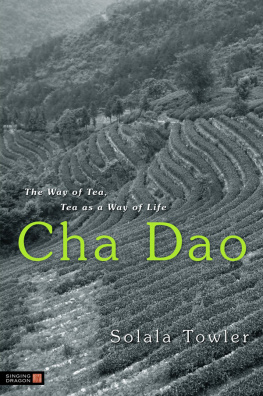
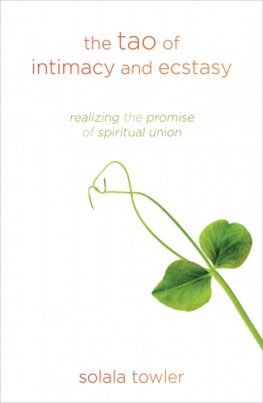
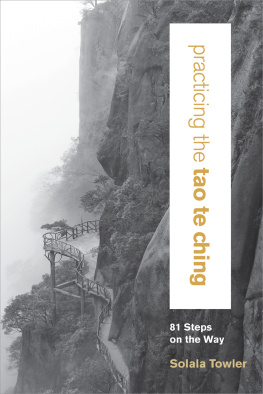
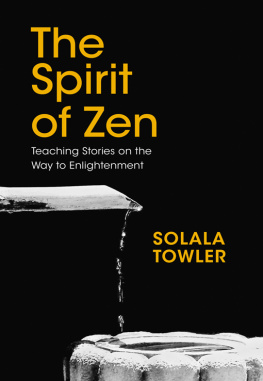
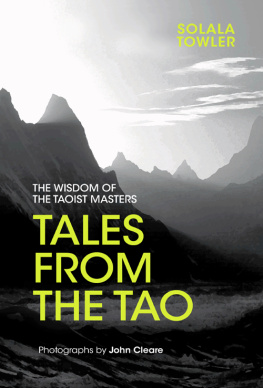
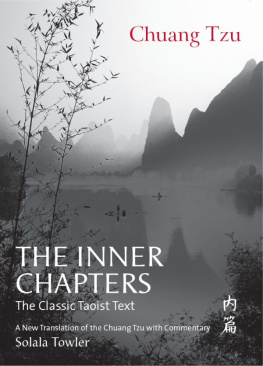
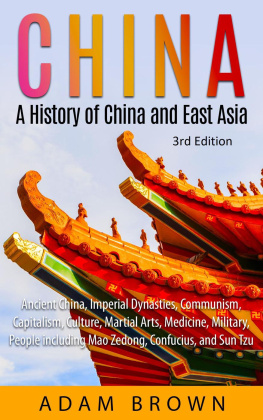
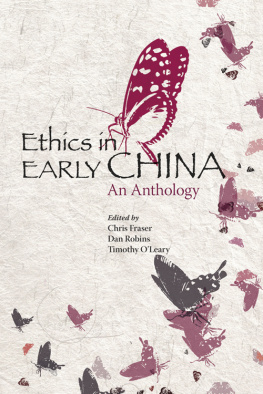

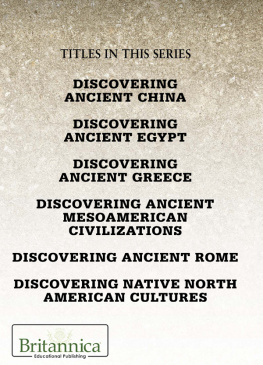
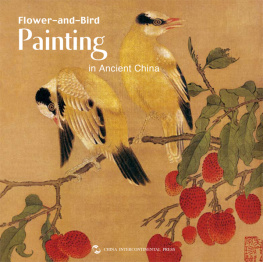
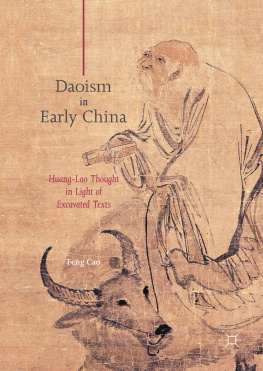

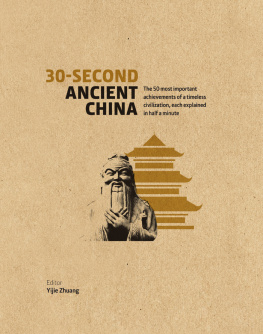
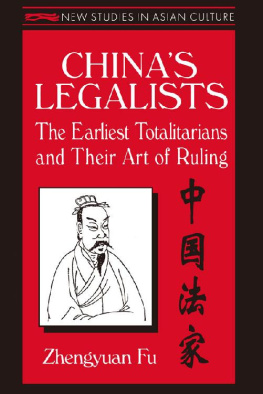
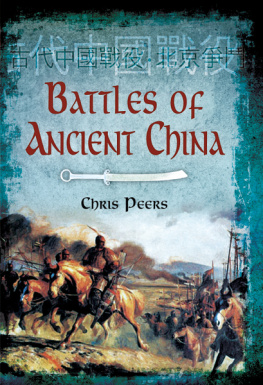
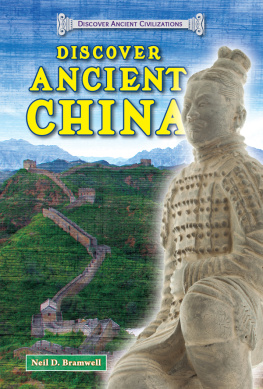
 It is composed of three parts. The top one represents plants. The middle one represents human or person. The bottom one means wood or being rooted. Thus the true meaning of cha or tea could mean something like the plant that gives humans a sense of being rooted or balanced.
It is composed of three parts. The top one represents plants. The middle one represents human or person. The bottom one means wood or being rooted. Thus the true meaning of cha or tea could mean something like the plant that gives humans a sense of being rooted or balanced.